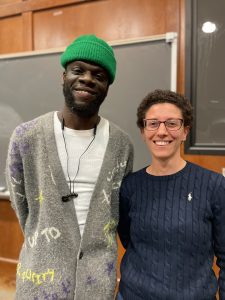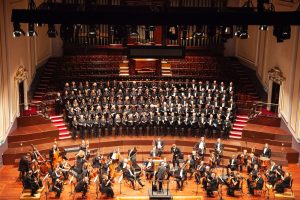Unità 6 – Una giornata per gli spettacoli
6.1 – Quale film hai visto?
A casa
Studia il vocabolario “Il cinema” e la grammatica “Il passato prossimo con Avere” . Fai gli esercizi in questo libro mentre studi.
Study the vocabulary “Il cinema” and the grammar “Il passato prossimo con Avere” then do the exercises embedded in this book while you study.
6.2 – Il Festival del cinema di Roma
In classe
Vocabolario: “Il cinema”
Grammatica: “Il passato prossimo con Avere”
Attività 1 – Revisione del vocabolario
Step1 – Il festival del cinema di Roma
Lavorate in gruppi di 3 o 4 persone. Andate al seguente link https://www.mymovies.it/festival/roma/ e trovate le seguenti informazioni.
Work in groups of 3 or 4 students. Follow the link and find the information below.
1) Dove si svolge? Quante volte all’anno si svolge e in che mese?
2) Quanti film sono in programma? Quanti film drammatici? Quante commedie?
3) Quali paesi hanno presentato il maggior numero di film?
Step 2 – Indovina la parola
Lavorate gruppi da quattro e formate squadre da due studenti. Ogni coppia sceglie una parola da quelle qui sotto e la spiega in italiano. Ogni coppia deve usare le parole suggerite e può usare altre parole. Non potete usare la parola da definire o parole in altre lingue. Gli altri studenti indovinano la parola.
Work in group of 4 and team up with another classmate. Each team picks a word from the ones below and defines it using the suggested words, all the suggested words must be used along with other words chosen by the student. They cannot use the word that they have to define or words in other languages. The other team guess the word.
Esempio:
| Parola da spiegare: Attore / attrice. |
| Parole da usare: battute / set / regista |
Questa persona dice le sue battute sul set con il regista.
Attività 2 -Intervista al passato
Aprite il link seguente wordwall al passato e rispondete alle domande usando il passato.
Follow this link and answer the questions using passato-prossimo with avere
Riflettiamo! – Il passato prossimo con AVERE
|
Comprare |
| io ho comprato
tu ____ comprato lui/lei/Lei ha ________ noi abbiamo ________ voi _______ comprato loro hanno comprato |
Then discuss with your classmates and answer the following questions
- What verbs form Passato Prossimo?
- How do you form the regular of the past participle?
- are –>
- ere –>
- ire –>
- Is there an irregular form of the past participle?
- Does the past participle make the agreement with the subject?
Attività 3 – L’ultimo film che ho visto…
Step 1 – Match the verbs with their past participle
| Infinitive | Past Participle |
| vedere | pianto |
| ascoltare | mangiato |
| dirigere | riso |
| recitare | preferito |
| comprare | comprato |
| ridere | parlato |
| piangere | diretto |
| preferire | recitato |
| mangiare | ascoltato |
| parlare | visto |
Step 2 –Lavorate in coppie e scegliete un film che avete visto recentemente. Usate le parole dalla lista del vocabolario, i verbi nella tabella sopra, aggiungete aggettivi ed espressioni di tempo oppure le ore per parlare del film in generale e della vostra esperienza.
Work in pairs, pick a movie that you watched recently. Use the words from the vocabulary “Il cinema” and verbs from the chart above to make sentences. Do not forget to add adjectives and include expressions of time or hours.
Step 3 – Write the sentences in your notebook and then share with the class.
6.3 – Chi è Antonio Dikele Distefano?
A casa
Studia il vocabolario “Il cinema” e la grammatica “Il passato prossimo con il verbo ESSERE” . Fai gli esercizi in questo libro mentre studi.
Study the vocabulary “Il cinema” and the grammar “Il passato prossimo con Avere” then do the exercises embedded in this book while you study.
Leggiamo 6
Chi è Antonio Dikele Distefano?[1]
 |

Director Antonio Dikele Distefano at UT-Austin presenting his movie “Autumn Beat” – February 2023 |
Scrittore e sceneggiatore, Distefano ha avviato con Zero, la serie Netflix, un dibattito sulla diversity nel mondo cinematografico e seriale italiano.
Il suo nome è comparso sui giornali di tutto il mondo, dal New York Times a Variety ma chi è Antonio Dikele Distefano e perché da qualche anno tutti parlano di lui? Distefano è l’ideatore di Zero, la nuova serie originale italiana di Netflix. Il polverone si è alzato intorno a questa serie perché Zero ha aperto un dibattito importante sulla diversity nel mondo attoriale italiano e ha portato alla luce alcune lacune come quella dell’inesistenza di personaggi di colore nelle serie TV italiane. Zero, invece, ha un cast quasi completamente di colore, così come di colore è il suo ideatore e sceneggiatore. Ma Antonio Dikele Distefano non vuole parlare di diversity perché il suo obiettivo è quello di farla diventare la normalità.
[…]
Antonio Dikele Distefano: la biografia
Distefano è nato a Busto Arsizio, il 25 maggio del ’92, da genitori angolani. Antonio Dikele Distefano è uno scrittore e direttore della rivista Esse Magazine. La sua infanzia l’ha trascorsa a Ravenna, così come la sua adolescenza dove si è appassionato di musica hip-hop ed è anche diventato un compositore con lo pseudonimo di “Nashy”. È stato, inoltre, parte di un duo musicale dal nome “Primavera Araba”.
La sua carriera di scrittore è iniziata nel 2015 con il primo romanzo auto-pubblicato (e poi ripubblicato da Mondadori) dal titolo Fuori piove, dentro pure, passo a prenderti?. Altri libri pubblicati con Mondadori sono: Prima o poi ci abbracceremo, Chi sta male non lo dice, Non ho mai avuto la mia età (che ha vinto il Premio Fiesole nel 2018) e Bozze.
È solo, però, nel 2019, dopo alcune apparizioni in programmi tv come Quello che è – Nuove storie italiane e Nuove strade, che arriva il primo progetto importante con il colosso dello streaming Netflix. Ed è così che Distefano è riuscito a farsi un nome*. Il progetto è quello della serie TV Zero che ha debuttato sulla piattaforma di streaming il 21 aprile 2021. La serie è ispirata al suo libro Non ho mai avuto la mia età e Antonio Dikele Distefano è diventato famoso perché ha portato persone di colore in tv, in un cast di una serie popolare per una piattaforma di streaming popolare.
*This article has been take from Today Spettacoli&TV https://www.today.it/media/serie-tv/chi-e-antonio-dikele-distefano-creatore-di-zero-netflix.html] and it has been readapted for educational purposes.
6.4 – Essere o Avere
In classe
Vocabolario: “Il cinema”
Grammatica: “Il passato prossimo con ESSERE”
Attività 1 – Revisione Passato prossimo con Essere.
Unisci i verbi con le immagini e racconta la vita di Valentina. Coniuga i verbi al Passato Prossimo con Essere. Usa le espressioni di tempo al passato.
Match the verbs with the images and then tell Valentina’s life. Conjugate the verbs in the Present Perfect (Passato Prossimo) using ESSERE. Make sure to add expressions of time.
| laurearsi | invecchiare | trasferirsi |
| andare | nascere | diventare |
| Immagine 1 | Immagine 2 | Immagine 3 |
 |
 |
 |
| Immagine 4 | Immagine 5 | Immagine 6 |
 |
 |
 |
Riflettiamo! – Il passato prossimo con Essere
Read the following sentences then answer to the questions.
- Marta è venuta da noi il fine settimana scorso
- Giovanna e Marco sono stati a casa ieri.
- Prima dell’inizio del film Marta e io ci siamo incontrate davanti al cinema.
- Non mi è piaciuto lo spettacolo di settimana scorsa.
- How is the Present Perfect (Passato Prossimo) formed when we use the verb ESSERE?
- What kind of verbs require the use of the verb ESSERE?
- Does the Past Participle (Participio Passato) need to agree with the subject?
- Where does the reflexive pronoun goes when we use reflexive verbs in the Present Perfect (Passato Prossimo).
Attività 2 – PLEASE GO ON CANVAS AND COMPLETE “THE FROG STORY”
6.5 – Revisione
A casa
Please review the grammar “Il passato prossimo con AVERE” and “Il passato prossimo con ESSERE”
6.6 – Un’intervista ai Måneskin
A casa
Studia il vocabolario: la musica e la grammatica I pronomi diretti con il Passato Prossimo
Ascoltiamo 6
Un’intervista ai Måneskin
Guarda l’intervista Måneskin x newonce. radio interview e poi rispondi alle domande di comprensione su Canvas.
6.7 – Che cosa hai fatto ieri
In classe
Vocabolario: la musica
Grammatica: I pronomi diretti con il Passato Prossimo
Attività 1 – Revisione del vocabolario
Lavorate in gruppi, usate parole e frasi per descrivere le immagini.
| Esempio
La banda dei Longhorn ha suonato alla partita. I musicisti hanno suonato le trombe. Non hanno letto lo spartito. Loro hanno camminano e hanno suonano. Loro hanno seguito il direttore. etc.. |
| Immagine 1 | Immagine 2 |
 |
 |
| Immagine 3 | Immagine 4 |
 |
 |
Riflettiamo – I pronomi oggetto diretto con verbi al Passato Prossimo
Read the following questions and discuss with your classmates about the use of the direct object pronouns in sentences in Passato Prossimo
- Ho comprato le scarpe di Gucci ma non le ho messe.
- Sandra ha suonato il violino e poi l’ha messo nella custodia (case).
- Gli attori hanno scelto i costumi e poi li hanno indossati.
- Il regista ha ascoltato la canzone, ma non l’ ha aggiunta alla colonna sonora.
Domande:
- Where does the direct object pronoun go?
- Does the past participle make the agreement? What should you look at to make the agreement?
- How do LO and LA modify in front of the verb AVERE?
Attività 2 – Che cosa hai fatto ieri?
Guarda il video Che cosa hai fatto ieri e poi rispondi alle domande in questo documento
Dopo aver visto il video rispondi alle domande seguite con il Passato Prossimo e un pronome diretto.
- Che cosa hai fatto ieri?
- Hai cantato una canzone al Karaoke nel fine settimana?
- Tu e i tuoi amici avete comprato i biglietti per uno spettacolo al Moody Center?
- Taylor Swift ha fatto un concerto in Texas nel 2023?
- Hai ascoltato un artista italiano dal vivo?
Presentazioni dei progetti finali
6.7 – Mercoledì
Revisione vocabolario e pronomi diretti
6.8 – Uno spettacolo
In classe
Scriviamo 6
Il mio ultimo spettacolo
Scriviamo#6 will be administered in class. Write a short production of 70 to 100 words in Italian and talk about the last movie or opera play or musical or art event that you attended (do not write about a concert). Use the following questions as suggestions for your production.
- Quando sei andato/a?
- Dove sei andato/a?
- Che cosa hai visto?
- Che cosa hai fatto prima o dopo lo spettacolo?
- Che cosa ti sei messo/a?
- Con chi sei andato/a?
- Che cosa ti è piaciuto o cosa non ti è piaciuto?
Grammar and Vocabulary – Your production must include
-
-
-
-
- Various vocabulary studied in this or previous units.
- 3 or more Passato Prossimo with essere (one must be with a reflexive verb)
- 3 or more Passato Prossimo with avere (one must be with direct pronouns)
- 3 Expressions of time in the past.
- Adjectives
- Negative form
-
-
-
Attività 1 – Hai mai…?
Lavorate in coppie e giocate al gioco “Never have I ever…” ma in italiano. Nelle domande e nelle risposte usate gli avverbi: MAI / ANCORA / GIÀ. Coniugate i verbi al passato prossimo e usate i pronomi diretti. Fate attenzione all’accordo.
Work in pairs and play the game “Never have I ever…” but in Italian. Use the adverbs MAI / ANCORA / GIÀ in the questions and answers as in the examples below.
| Avverbi
mai = ever / never Esempio: Hai mai mangiato la pizza con la nutella? No, non l’ho mai mangiata
già = already ancora = yet Esempio: Hai già comprato i biglietti per il concerto? No, non li ho ancora comprati
|
I suggerimenti per le domande – Suggestions for your questions, please try to ask follow-up questions: perché? /quando? come? dove? etc…
vedere la serie TV Wednesday.
leggere la trama del tuo film preferito
mangiare i popcorn al cinema
bere un caffè caldo durante un concerto
visitare un museo di notte.
comprare un biglietto su Ticketmaster
Presentazioni dei progetti finali
6.9 Revisione
Review Il passato prossimo con Avere , Il passato prossimo con ESSERE, Il passato prossimo con i pronomi diretti
6.10 – Che musica ascolti?
A casa
Review Vocabulary La musica
Parliamo 6
Che musica ascolti?
Registra un video mentre leggi e rispondi alle domande seguenti.
1) Qual è il tuo cantante o gruppo preferito?
2) Quando e con chi sei andato al tuo ultimo concerto?
3) Quale artista o gruppo hai potuto ascoltare?
4) Hai mai guardato programmi come Eurovision, XFactor, America’s got talent? Ti piacciono? Perché?
5) Conosci un cantante o un gruppo italiano famoso oppure una canzone italiana famosa?
Grammar and Vocabulary – Your Production must include
- Vocabulary of Music studied in this unit of previous units
- 2 or more Passato Prossimo with ESSERE / AVERE
- 2 Passato prossimo with reflexive verb
- 1 or more passato prossimo with modal verbs
6.11 – Che confusione…
Attività 1 – Ricordi confusi
Note to the instructor – Please print the following document “Ricordi Confusi” and follow the instructions.
Lettura Culturale: Il Festival della canzone italiana
Lavorate in gruppi e leggete il testo qui sotto, poi rispondete alle domande di comprensione.
Il Festival della canzone italiana, o Festival di Sanremo è un festival musicale che si svolge ogni anno in Italia, a Sanremo nella regione Liguria a partire dal 1950. Molti dei cantanti più famosi in Italia hanno partecipato al Festival di Sanremo.
Il Festival di Sanremo è considerato uno dei più importanti e longevi festival musicali al mondo.
I vincitori, vincono come premio la statuetta del Leone di Sanremo . Questo è uno dei premi più prestigiosi per i cantanti italiani di musica leggera.
Ogni anno il direttore artistico, insieme ad una commissione, sceglie i brani prima della competizione. II cantanti italiani devono presentare brani inediti in lingua italiana o in una lingua regionale italiana.
Il pubblico da casa e una giuria di esperti vota le canzoni con il tele voto.
Il comitato RAI (Radiotelevisione italiana) sceglie il direttore artistico. Il direttore artistico per l’edizione del 2024 è Amadeus che ha anche diretto le edizioni dal 2020 al 2023.
Il cantante Marco Mengoni ha vinto l’edizione del Festival di Sanremo del 2023 con la canzone “Due Vite”.
Il Festival di Sanremo è collegato all’Eurovision Song Contest, quindi il vincitore di Sanremo può partecipare alla competizione canora europea.
Nel 2021 i Måneskin hanno vinto il Festival di Sanremo e l’Eurovision Song Contest con la canzone “Zitti e Buoni” a Rotterdam. Grazie alla loro vittoria, nel 2022 la gara canora europea si è svolta in Italia a Torino dal 10 al 14 di maggio.
In gruppo rispondete alle seguenti domande
- Dove si svolge il Festival della canzone italiana?
- Quando è iniziato il Festival di Sanremo?
- Chi sceglie le canzoni che possono gareggiare?
- Quali brani possono gareggiare?
- Dove si è svolto l’Eurovision Song Contest nel 2022?
Presentazioni dei progetti finali
Revisione a casa
Review vocabulary and grammar studied in this unit.
Work on the format and review for the final exam available on Canvas.
Revisione in classe
Presentazioni dei progetti finali e Revisione per Esame finale
Progetto Culturale 6
La nostra canzone preferita
Situazione: Tu e i tuoi compagni parlate dei vostri cantanti italiani preferiti.
Compito: Create una conversazione in cui ogni coppia di studenti presenta brevemente il suo cantante o il suo gruppo musicale italiano preferito.
Link utili:
Indicazioni:
- Work in group of 4 and check the links embedded to this project.
- Create a role-play where you talk about the following topics
- each pairs introduces an Italian contemporary singer or band of their choice. (names, date and place of birth and a few biographical info, physical description etc. most important prizes won etc.).
- Pick a song and watch a video than talk about where and when you listened to the song for the first time and who was with you.
- Tell what you did like or did not like about the performance of the singer or band. (Talk about the emotions, the attire etc. we don’t want an expert feedback on the musical skills of the singer/group).
- Once your conversation is ready, practice reading it multiple times, check the pronunciation with forvo.com and “memorize” it before you present it in front of the class. Try to make the conversation sound as natural as possible.
- BE CREATIVE and feel free to use props, slideshows (with images), music etc.
- The presentation should last at maximum 10 minutes and it must include the role play about the main cultural topic of this project and 2-3 minutes of grammar review led in English.
- Students should review TWO of the following grammar structures:
- passato con avere
- passato prossimo con essere
- i pronomi diretti con il passato prossimo
- Students should use examples from their own script and add an exercise (max 5 sentences) to practice with the whole class
- Each student has to talk also during the grammar review.
- Students should review TWO of the following grammar structures:
Grammatica e vocabolario:
While you write your dialogue, make sure to use ONLY the grammar structures studied in this or other units of this course and to include various examples of the following:
- Il passato prossimo con essere e avere
- il passato prossimo dei verbi irregolari
- I pronomi diretti con il passato prossimo
- Espressioni di tempo con il passato prossimo
- Vocabolario della musica
- Vocabolario degli spettacoli
Hai finito l’unità? Fai il Check-in Quiz su Canvas!
- null ↵
it makes a fuss
acting world
it brought to light
gaps
To become famous
takes place
it is considered
one of the most
long-lasting
prize
small statue
pop music
songs
team of experts
committee
it is connected


